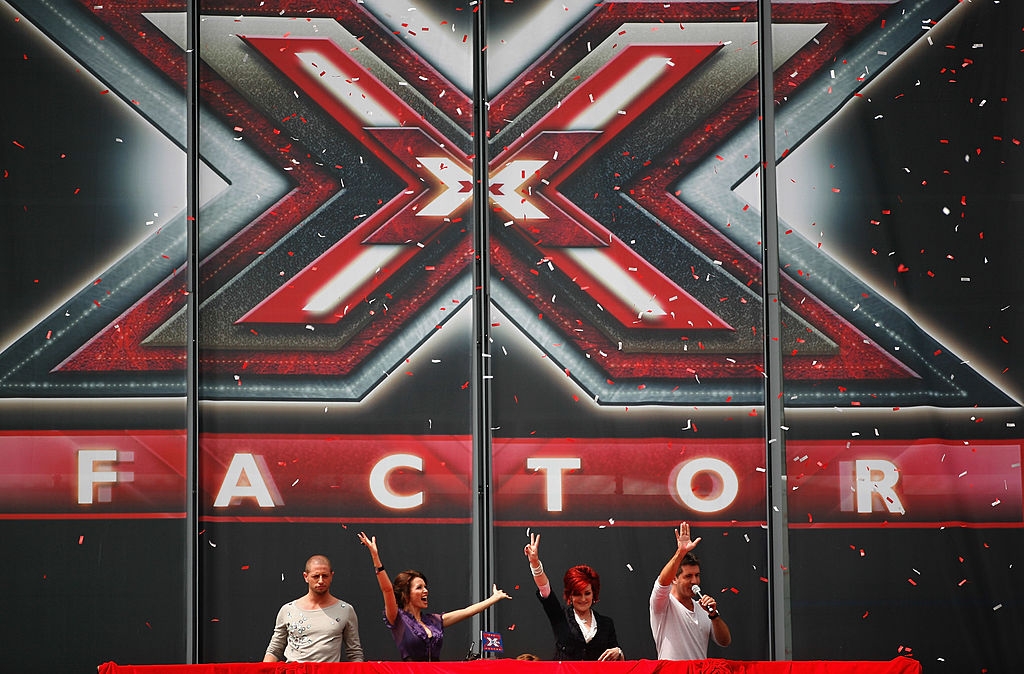On hearing that the X Factor is no more after our 17 years together, I reflected on what a journey it had been, how I’d given it 110 per cent and that I would never hear those four huge ‘yeses’ again. Bravely holding back the tears, I couldn’t help but agree with its founder Simon Cowell that the show had ‘become slightly stale’ – slightly! I’ve seen twice-used tea-bags with more sheer molten stage presence than some of the finalists who made it through in the latter seasons before it was taken off for a ‘rest’ in 2018.
How different it was at the beginning! After a slow start attempting to make stars out of Steve Brookstein and Shayne Ward, I remember Leona Lewis’s breath-taking performances which won her the third series, followed by the formidable Alexandra Burke with season five and Little Mix in year eight. There was once so much commercial appeal going spare on the show that One Direction didn’t even win season seven! It made all the right people cross: ‘Reality TV has killed talent,’ Elton John fumed in 2011. ‘Can any X Factor people cut the mustard?’ To which the answer was, yes, you old clown, even runners up like Amelia Lily and Stacey Solomon could sing you into the ground.
The show should have been put out of its misery years ago. But there are things I’ll miss
In recent years, however, the peevish old piano-punisher was proved right. From 2013, the likes of Sam Bailey, Ben Haenow, Louisa Johnson, Matt Terry and Rak-Su were hardly troubling the charts. As talent seemed to thin out, novelty acts such as the profoundly awful Jedward, Honey G and Chico the goatherd were promoted way beyond their capabilities, perhaps to rival the vaudeville appeal of the all-conquering Britain’s Got Talent. One got the feeling at some point that if Simon Cowell – a famous friend of canine companions – could have allowed dogs to enter the X Factor, he would have done.
Cowell was always the star of the show, though. He, not forgettable crooners like Matt Cardle and James Arthur, truly had the X Factor – the undefinable little something extra that makes for star quality. When he winked at a lucky auditionee I felt a pang of envy; once I had a shocking sex dream about him, during which I’d never so much enjoyed being told in the basest of terms how rubbish I was. He was even on the Simpsons! But not even his best friend (the ever-present Sinitta) could claim he had the best taste in music; prior to the show, he was responsible for inflicting such vocal titans as the Power Rangers, Zig and Zag and Robson & Jerome on a quavering world.
The show should have been put out of its misery years ago. But there are things I’ll miss. It started at a time when pop music was just starting to be over-run by posh kids; such a high proportion of chart acts are now so privately and lengthily educated that Cerys Matthews no longer plays records by ‘over-privileged’ artists such as Coldplay and Florence Welch on her radio show. The X Factor was one of the places where a talented working-class kid could make their voice heard – literally. Secondly, the white British working-class are forever being lectured about what rabid racists they are; it was lovely to see the many-hued families of the young performers embrace them after they’d performed.
But this was the bright side of the shows of emotion the X Factor featured; the downside was that almost every auditionee took it upon themselves to announce that their grandmother had recently expired and that they were ‘doing this’ for her, though the jury was surely out on whether ‘Nana’ would have been altogether delighted to see her granddaughter wiggling about in a thong in front of millions of strangers. It got to the point where I fully expected the next crying contestant to proclaim ‘I’m doing this for Tweety!’ after revealing that his budgerigar had recently choked on an overlarge cutlet of cuttlefish. We could see the beginning of the monetising of emotion which so blights our culture today, where the one who cries loudest gets the most attention and the tough are portrayed as cold-hearted weirdos.
But human emotions are fascinating – and at some point, the prime-time television audience decided it was more fun to skip the singing and cut straight to the chase of love and hate. With shows like Love Island and Married At First Sight, we no longer have to sit through yet another version of ‘Wind Beneath My Wings’ before we get to nose about in the emotional Rolodex of attractive youngsters. There are seven basic plots in storytelling: Overcoming The Monster, Rags To Riches, The Quest, Voyage And Return, Comedy, Tragedy and Rebirth. And the X Factor, in its cheap and cheesy heyday, communicated more about the human desire to aspire and achieve that any boring old quality drama ever could.







Comments